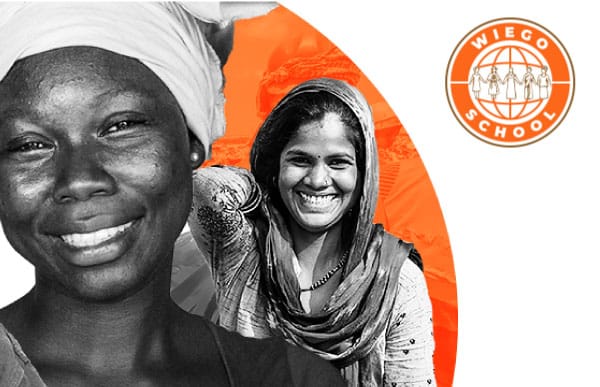
Throughout its 25-year history, WIEGO has maintained its commitment to strengthening organizations of workers in the informal economy.
The WIEGO School starts at a time when all four sectors—domestic workers, home-based workers, street and market vendors, and waste pickers—have organized globally to have a voice in policy decisions for many workers in informal employment.
In the rapidly changing world of work, workers in the informal economy must be even better prepared to struggle for equity and justice through strong democratic organizations.
The four key objectives of the WIEGO School, as agreed by the ORP Advisory Committee and the WIEGO Board, are therefore:
Objective 1: Prepare informal economy worker leaders, especially women, to work within their organizations to cultivate democratic values, procedures and outcomes; expand the depth and reach of their organizations through recruitment and organizing; develop mechanisms of transparency and accountability; and expand worker education.
Objective 2: Increase the ability of informal economy worker leaders to engage in collective bargaining with diverse counterparts—including local governments, supply chain actors, corporations and multilateral organizations—through specialized training in negotiation, including negotiation specifically in relation to formalization programmes.
Objective 3: Deepen the capacity of Member-Based Organizations (MBO) leaders to understand, analyze and advocate in the fast-changing policy contexts that directly affect the livelihoods of workers in the informal economy through learning about all other aspects of WIEGO’s work—social protection, statistics, law and urban policies—alongside the development of popular education materials.
Objective 4: Train informal economy worker leaders in skills related to management, fundraising, communications, and organizational sustainability so as to inspire a long-term vision of their organizations within the changing world of work.
The first phase of the WIEGO School takes place virtually from mid-May to mid-July 2022, when three parallel courses will be run for participants nominated by the global Network Organizations and WIEGO Focal Cities in Asia, Africa, and Latin America (Brazil only). This pilot phase will be run in only a few languages while WIEGO tests the learning methodology and the technology required to keep participants connected.
The first phase is a general course, comprising seven learning sessions with participant activities and tasks between each session, supported by a co-ordinator. The aim of this general course is to build the knowledge and confidence of the participants in the areas of membership recruitment and building democratic accountability; social protection; inclusive public space and urban design; collective negotiations; and collective action by workers in the informal economy. An additional but equally important aim is to build lasting solidarity between the participants within a geographic region and across different sectors of the informal economy. It is hoped that, through the process of online participatory learning, the participants will acquire new worker education method skills and apply them within their own organizations.
An evaluation of the first phase will feed into plans for the WIEGO School going forward.
By building working-class unity, collective organization and solidarity, workers can transform their lives and societies!
